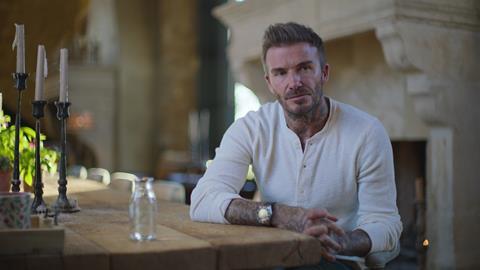Jon Dyson, head of sport at Formidable, explains the value of authenticity

Player power: a phrase those who follow football will have become very accustomed to. For years player power referred to the power footballers had within their clubs to influence much more than their own performance on the pitch. Now, the concept of player power extends far beyond the confines of club politics and is having a significant impact on the way brands engage with sport to advertise their products.
Brands have been capitalising on the fame and image of popular footballers since the late 1960s and early 1970s, when George Best appeared in ads for everything from aftershave to eggs. The likes of David Beckham, Cristiano Ronaldo and of course Lionel Messi have since picked up the brand poster-boy baton – with the world’s household brand names vying for football’s top stars to be the face of their campaigns.
However, the advent of social media has contributed to a significant shift in this dynamic. From the world’s most loved teams to the more obscure sports, athletes have been given the power to elevate themselves in the public eye, develop loyal fanbases, and define themselves beyond their on-pitch performance through platforms like TikTok, Instagram, and YouTube. The rate and scale at which they can build these personal audiences was never possible before. Aston Villa’s WSL star Alisha Lehman has over 40 x more Instagram followers (16.9M) than her own club (401K), and over 4 x the number of followers of Aston Villa’s men’s team (3.8M).
What does this mean for brands? Firstly, there is a huge proliferation of talent to work with who have large and loyal audiences that can be tapped into. Secondly, the opportunity to collaborate with athletes in new ways that are much more fitting to both the brand audience and, perhaps more importantly, the audience of the player. The key to all of this is the power to create authentic content.
There has never been a more well connected, content savvy generation of fans than today. Through the lens of social, football fans – and fans of all sports – can build what feels like a personal rapport with their favorite athletes. We see what they do away from the training ground, how they mess around with their dogs and kids, how they dress, and who they hang out with. Celebrity athletes are no longer mysterious unattainable mega-stars who we only see in the newspapers, they feel more like old friends.
The opportunity for brands and players alike to form partnerships that deliver entertaining content to these audiences is huge, but too often the old way of thinking creeps in: “Here’s the script – can you post this on your Instagram?”. When brand marketers don’t consider their chosen partner athlete’s strengths (as well as those of the platforms they use) and haven’t taken the time to obsess over the minute details that matter to their fans, the end results will always fall flat, or even worse, be ridiculed to the point where they become immortalized in the form of a meme. Why? Because the content doesn’t feel authentic to the athlete or their audience.
The days of players standing on set and reading brand taglines are winding down, and the age of players venturing into the business of creativity to increase their ownership of their narrative is on the rise. David Beckham’s Studio 99 and Trent Alexander-Arnold’s Status Creative are just a couple of examples.
Footballers are now playing in the space between brands and owning their own creative.
So, how can brands best harness athletes’ loyal fan followings on social without delivering content that feels like a standard commercial? Authenticity on social requires working with creative teams and production partners that understand social platforms, trends and formats, and understand the talent, their strengths, and their audiences.
If you’re working with sport talent to create branded content, allow yourselves to take risks, and stop being confined by traditional scripted formats. And most importantly, resist the temptation to shoehorn complicated brand messaging that was labored over in a boardroom, into influencer social media content that should be above all, entertaining.
And, perhaps more importantly, put yourself in the shoes (or boots) of the player…if they’re enjoying what they’re doing, this comes across in the content. And if the content has authentic personality then it’s more likely to land well with fans.

Jon Dyson is head of sport at Formidable







No comments yet